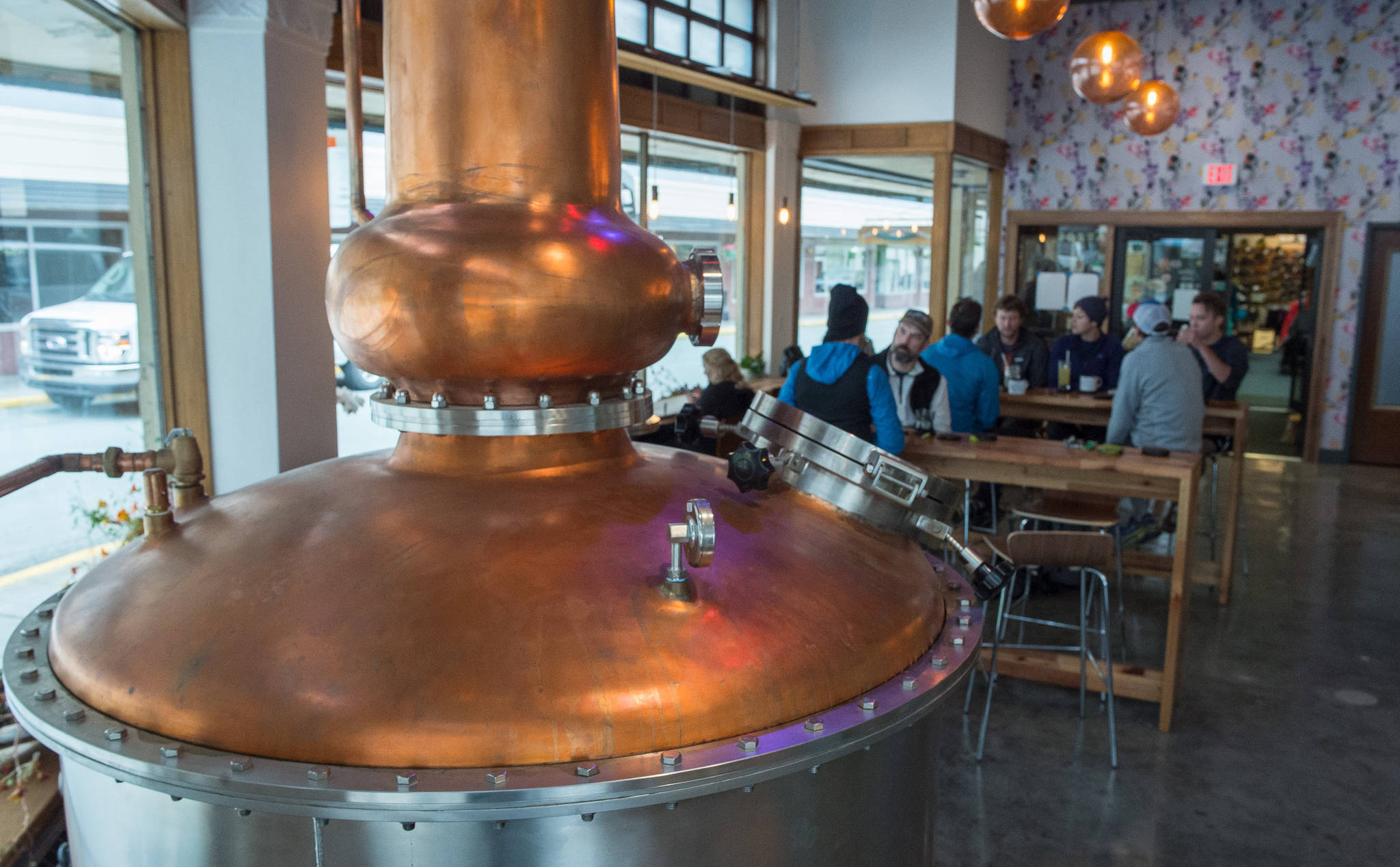After almost three years serving cocktails across the counters of their tasting rooms, Alaska distilleries have been told to stop the practice.
On Monday, state regulators said even though the practice is a familiar one for some Alaskans, they hadn’t heard of it until earlier this summer.
Erica McConnell, director of the Alaska Alcohol and Marijuana Control Office, and Cynthia Franklin, her predecessor as director, each said they didn’t know distilleries were offering mixed drinks. Harriet Milks, the assistant attorney general who advises the alcohol and marijuana control office, likewise said the issue had never been previously addressed by regulators.
“Nobody came to the board staff and said, ‘Oh, can we be serving screwdrivers?’” Milks said.
Even Bob Klein, the chairman of the state alcohol board and CEO of Anchorage Distilling, never brought up the issue to regulators.
“It really never came up,” he said.
Alaska distilleries have been allowed to operate “tasting rooms” since the Alaska Legislature passed House Bill 309 in 2014. That bill was signed into law on Sept. 19, 2014.
Under the text of the legislation, distilleries may serve “not more than three ounces a day of the distillery’s product to a person for consumption on the premises.”
Three days after that bill became law, Franklin became the chief alcohol and marijuana regulator in the state.
“I never knew that anybody was selling or sampling mixed drinks or cocktails. I know it now because I read your article,” Franklin said, referring to a previous Empire report.
When she took the job, one of Franklin’s first jobs as director of AMCO was to address gaps in how HB 309 should be applied.
“We began a regulations project to straighten that out,” she said.
While things like a ban on TVs and live entertainment in distilleries were addressed, the issue of cocktails and mixed drinks never came up.
“Nobody brought it to me. Not enforcement, not distillers, nobody,” Franklin said.
As this was happening, distillers were taking advantage of a demand for cocktails. Their newfound tasting rooms became popular destinations for people seeking new tastes.
In 2000, each drinking-age Alaskan consumed an average of 2.69 gallons of liquor per year. In 2016, that figure had risen to 3.28 gallons of liquor, an increasing amount coming from the state’s distilleries.
Distilleries advertised their cocktails on social media and attracted crowds, but no one on either the distillers’ side or the regulators’ side appears to have asked the key question: Does House Bill 309 allow distilleries to serve cocktails?
Franklin even visited Port Chilkoot Distillery with an inspector in 2015 while in town to talk about marijuana issues, but she didn’t arrive during operating hours, and she didn’t see cocktails being served.
“I wasn’t aware at all that they were serving samples of mixed drinks. It wasn’t on my radar at all,” Franklin said.
Franklin left the alcohol and marijuana regulatory job at the start of this year to become the state’s leading consumer advocate. McConnell, who had been Anchorage’s “marijuana czar,” came into the job.
In June, regulators received a complaint about a distillery serving mixed drinks. AMCO investigated, and McConnell issued an advisory notice: Serving mixed drinks violates the “distillery’s product” section of HB 309.
The five-person alcohol board confirmed that notice in a 4-0 vote Friday (a previous vote was 3-1) and agreed to further examine the ruling.
Milks worked with both McConnell and Franklin, and has advised AMCO on legal issues for the past several years. She’s familiar with questions about issues as arcane as seating at distilleries, but in her research and memory, “I don’t recall any distillery coming to the board and saying, ‘We would like to confirm our interpretation that a distillery’s product could be a cocktail,’” she said. “The distilleries didn’t bring this to the board’s attention.”
AMCO has been stretched by extraordinary demand. Alaska has more than 2,000 alcohol licensees, and in the past three years it had to create a commercial marijuana regulatory structure from scratch. There are now about 200 marijuana licensees.
With the state facing a multibillion-dollar deficit, few staff have been added. No state department has been cut more than the Department of Commerce, parent of AMCO. Staff turnover has been high, and so has the number of vacant positions.
“Our office has been operating with a skeleton crew,” wrote Sarah Oates, AMCO’s regulatory director, in a report to the alcohol board last week.
McConnell and Franklin each said there’s no way to know if having more regulators would mean finding the problem sooner.
Alaska has just nine operating distilleries, and amid more than 2,200 licensees and the need to set up a marijuana system, it’s entirely possible that regulators simply missed a major shift in Alaska’s distilling industry because no one asked the right question.
Heather Shade, owner of Port Chilkoot Distillery in Haines and head of the Alaska Distillers Guild, said distilleries have been operating under the assumption that what they were doing was legal. They’re seeking a legal interpretation of their own and preparing to fight the state’s interpretation.
In the meantime, they’re continuing to serve cocktails.
• Contact reporter James Brooks at james.k.brooks@juneauempire.com or call 523-2258.

